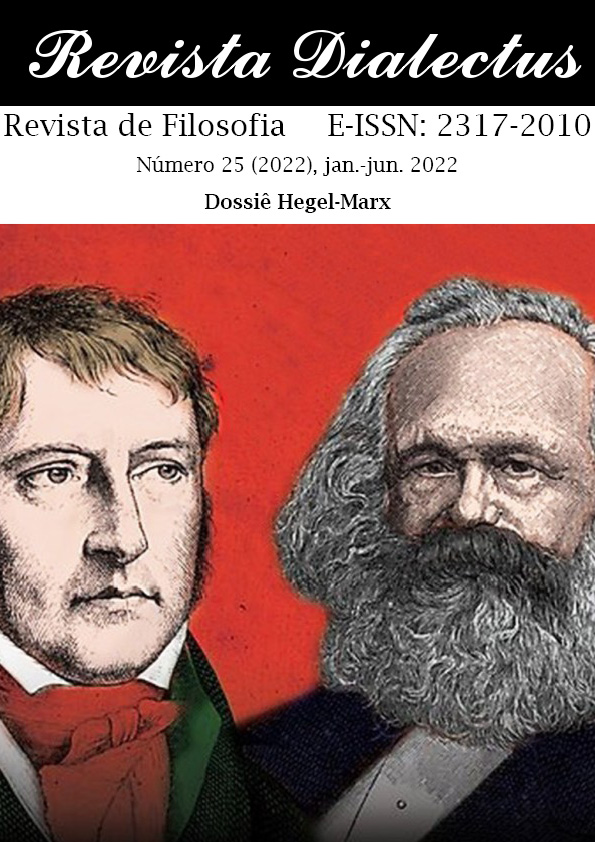A EXPLORAÇÃO DO TRABALHO COMO CONDIÇÃO DO LUCRO COMERCIAL E DA RENDA FUNDIÁRIA NO PENSAMENTO DE MARX
DOI:
https://doi.org/10.30611/2022n25id80841Keywords:
Lucro Comercial, Renda Fundiária, Mais-Valor, ExploraçãoAbstract
O objetivo deste artigo é demonstrar, a partir do pensamento de Marx, como o lucro comercial e a renda fundiária – dois componentes do mais-valor que, juntamente com o salário, correspondem aos rendimentos da fórmula trinitária – pressupõem a exploração do trabalho ou o intercâmbio desigual que mantém o processo de acumulação capitalista. As remunerações do comerciante e do proprietário fundiário, muito embora apareçam na superfície da economia moderna dissociadas do seu fundamento real, como se fossem autônomas e sem qualquer nexo com a espoliação que garante a autovalorização do capital, representam apenas quotas do trabalho excedente obtido na esfera da produção.
References
FEUERBACH, Ludwig. A Essência do Cristianismo. Petrópolis:Vozes, 2007.
MARX, Karl. Grundrisse: manuscritos econômicos de 1857-1858: esboços da crítica da economia política. São Paulo: Boitempo; Rio de Janeiro: Ed. UFRJ, 2011.
MARX, Karl. O Capital: crítica da economia política. Livro III. O processo global da produção capitalista. São Paulo: Boitempo, 2017.
NETTO, José Paulo. Karl Marx: uma biografia. São Paulo: Boitempo, 2020.
Downloads
Published
Issue
Section
License
Authors who publish in this journal agree to the following terms:
- Authors retain the copyright and grant the journal the right of first publication, with the work simultaneously licensed under the Attribution-NonCommercial-NoDerivatives 4.0 International (CC BY-NC-ND 4.0) License, which allows the non-commercial sharing of work, without modifications and with acknowledgment of authorship and initial publication in this journal.
- Authors are authorized to take additional contracts separately, for non-exclusive distribution of the version of the work published in this journal (eg publish in institutional repository or as a book chapter), with acknowledgment of authorship and initial publication in this journal.
- Authors are allowed and encouraged to publish and distribute their work online (eg in institutional repositories or on their personal page) at any point before or during the editorial process, as this can generate productive changes as well as increase the impact and citation of published work (See The Free Access Effect).



















